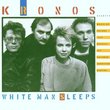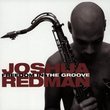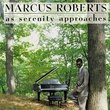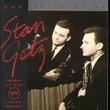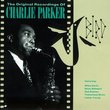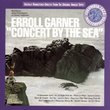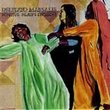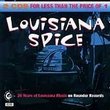| All Artists: John Sherba, Terry Riley, Krishna Bhatt, John Constant, Kronos Quartet Title: Short Stories Members Wishing: 0 Total Copies: 1 Label: © 1993 Elektra Entertainment Original Release Date: 1/1/1993 Re-Release Date: 3/9/1993 Genres: Jazz, Special Interest, Pop, Classical Styles: Avant Garde & Free Jazz, Vocal Pop, Chamber Music Number of Discs: 1 SwapaCD Credits: 1 UPCs: 075597931020, 075597931068 |
Search - John Sherba, Terry Riley, Krishna Bhatt :: Short Stories
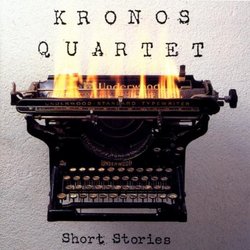 | John Sherba, Terry Riley, Krishna Bhatt Short Stories Genres: Jazz, Special Interest, Pop, Classical
![header=[] body=[This CD is available to be requested as disc only.]](/images/attributes/disc.png?v=430e6b0a) ![header=[] body=[This CD is available to be requested with the disc and back insert.]](/images/attributes/disc_back.png?v=430e6b0a) ![header=[] body=[This CD is available to be requested with the disc and front insert.]](/images/attributes/disc_front.png?v=430e6b0a) ![header=[] body=[This CD is available to be requested with the disc, front and back inserts.]](/images/attributes/disc_front_back.png?v=430e6b0a) |
Larger Image |
CD DetailsSimilarly Requested CDs
|
CD ReviewsShort stories greater than life ptitchitza | Leiden, Netherlands | 01/23/2001 (5 out of 5 stars) "This is one absolutely brilliant collection of compositions, from the beginning to the end of this CD, offering 75 minutes of music. It starts with a vivid and pulsating Digital, continues with Willie Dixon's Spoonful, transformed here into some sort of avant-garde blues (!?) performed with an intensity of Jimi Hendrix. Cat O' Nine Tails, appropriately subtitled as "Tex Avery Directs the Marquis de Sade", is a graphic performance, and with its humor, witty references and brief genre zip-zapping throughout the piece it's characteristic for John Zorn. Steven Mackey plays electric guitar with the Kronos Quartet in his own energetic and exiting piece, Physical Property.Scott Johnson's 13 minutes long Soliloquy makes me think that I have an advantage in not being a native English speaker because the sense of music of the foreign language always remains (at least to me it does). The inherent music in one's own mother tongue with all its melody, rhythm and texture usually goes unnoticed. By using the short edited parts, or "loops", of I.F. Stone's lecture I feel Kronos does exactly that: brings out the music of the English language and accentuates it with their own instrumental backing. It's a functional and artistically justified method, I feel, justified by the beauty of the composition and the text itself.One of the highlights of the CD is certainly Sofia Gubaidulina's Quartet No. 2. It brings a sense of eeriness and menace, maintaining the suspense, not unlike some of impressive and disturbing compositions of Krzysztof Penderecki. It would certainly quality as "musica non grata" to the totalitarian Soviet regime of the former USSR, Gubaidulina's country of birth.John Oswald's Spectre is an experience for itself. It is, simply, one of the most amazing, intense and breathtaking compositions I have ever heard. Like Cat O'Nine Tails, Physical Property and Soliloquy, it was written for Kronos Quartet. It was meticulously recorded in numerous but seamless layers of overdubs and in that sense it was really written for a huge string orchestra of, say, thousand string instruments all of which played by Kronos. It starts with sounds of the quartet's tuning-in out of which one single note is sustained. It sounds fragile and shallow at first but soon after subtly gains strength and depth. As its timbre becomes richer and richer, one gradually becomes aware of numerous other tones that co-exist with the first one, thousands of them, almost the same, but not quite. They start to interact, bumping into each other. And then... the pitch gets slightly higher, the sound constantly gains power in a mighty spiral, a tornado of sound that sucks you in and throws you out. Like a soul leaving the body, as in some Castaneda's novel. This is how I imagine shooting heroine must be like, as sometimes depicted in movies, where a little bit of blood is let into the syringe and then the mixture injected back. Musical Eros & Thanatos... One could say Spectre might be a musical metaphor for life itself, from birth to death with a promise of infinity or immortality.It's the music like this, fresh and adventurous, that brings all deserved praise to the Kronos Quartet. Short stories? No. More like synopses for epic novels, greater than life." Perhaps the furthest out of Kronos' recordings R. Hutchinson | a world ruled by fossil fuels and fossil minds | 04/25/2001 (5 out of 5 stars) "SHORT STORIES is an outstanding collection of new music. "Digital" by Elliot Sharp is all percussion, presumably produced with violin, viola and cello. "Spoonful," the great Willie Dixon song, is arranged for strings much like "Purple Haze" before it. "Spectre," by John Oswald, probably best known for his electronic manipulations of the Grateful Dead, is a piece that starts out inaudibly, and then all of a sudden gathers into what sounds like a UFO taking off! Cowell's "Quartet Euphometric" is a short, lovely piece, the most conventional on the album.
And that leaves the 5 longer pieces, each one masterful in its own right, and adding to an amazing overall effect: 1) John Zorn's "Cat O' Nine Tails," in which he applies his quick change methodology to the string quartet to hilarious effect, 2) Steven Mackey's "Physical Property" for electric guitar and quartet, with stunning rhythms and textures, 3) Scott Johnson's "Soliloquy" featuring a tape of I.F. Stone, the radical journalist, who questions the persistence of barbarism and tribalism, and asks, "...is it necessary to repeat after 2,000 years all the things you people learned in Sunday school?! How -- how absent-minded -- how forgetful!", 4) Sofia Gubaidulina's "Quartet No. 2", which is sinuous and splendid -- Kronos have done their part to put her before the public -- and 5) Pandit Pran Nath's "Aba Kee Tayk Hamaree," with the voice of the North Indian master, and his disciple Terry Riley on tamboura, a reverent way to close, and the first chance for myself and many others, I'm sure, to hear him. Of the Kronos releases I've heard, SHORT STORIES is the furthest out, with the least reference to the early 20th century, and the greatest risk-taking vis a vis the classical music establishment. It works! Fantastic!" |

 Track Listings (9) - Disc #1
Track Listings (9) - Disc #1